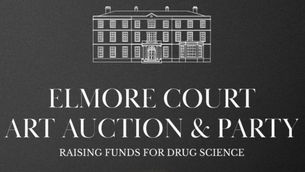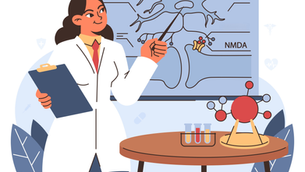top of page

Blog
At Drug Science we like to cover different topics relating to drugs. These topics cover the many different ways that psychoactive substances have an impact on our culture and society.


Join Us for the PsyEdu March Mini-Conference
This year’s theme, “Unheard and Unseen,”brings together leading researchers, practitioners, and culture-shifters to shine light on the voices too often overlooked in the psychedelic renaissance.
Drug Science and PsyEdu
5 hours ago2 min read


New front runners in Psychedelic Research emerge, as Texas put 50 million into Ibogaine R&D
On June 11th, 2025, Texas passed Senate Bill 2308, allocating $50 million in state funds towards the research and development of ibogaine for medical use. The bill had support from a large bipartisan majority and was signed by Gov. Greg Abbott, authorising universities, hospitals, and drug developers to work towards potential FDS-approved ibogaine treatments for veterans.
Iona Grahame
5 days ago4 min read


Drug Science Responds to the ACMD’s Review of Ketamine Use and Harms
In January 2025, the then Minister for Policing, Fire and Crime Prevention commissioned the Advisory Council on the Misuse of Drugs (ACMD) to provide an updated assessment of ketamine-related harms, consider its appropriate legal classification, and advise on how best to reduce harms associated with ketamine use.
Hannah Barnett
Feb 33 min read


2026 Police Guidance on Medicinal Cannabis in the UK: Progress, Limits, and What Comes Next
For the first time since cannabis-based products for medicinal use were legalised in 2018, police officers across England and Wales now have a shared set of principles to guide interactions with patients who are lawfully prescribed these treatments.
Hannah Barnett
Jan 293 min read


Drug Science, Policy and Law - 2025 a year in review
In 2025, DSPL published 21 articles with contributions from 86 different authors, with reviews and original research covering psychedelics, cannabis and harm reduction. This report will summarise the major themes and key findings covered in the journal this year.
Ameer Morshed and Finn Laslett
Jan 286 min read


Support Drug Science at the Elmore Court Art Auction & Party
The Elmore Court Art Party promises a night where art, music, science, and celebration come together in support of evidence-based drug policy.
Drug Science
Jan 222 min read


When Researchers Undermine Their Own Evidence: The Emergence of “Reverse Spin Bias”
A new study by O’Leary et al (2026) published in Research Integrity and Peer Review introduces a striking, unexplored phenomenon in academic research: “reverse spin bias.”
Unlike conventional spin bias, where authors frame nonsignificant results as significant or meaningful, reverse spin bias occurs when evidence of benefit is ultimately discounted or discredited by the very authors who produced it.
Hannah Barnett
Jan 213 min read


Development of a mandarin version of the five dimensional altered states of consciousness (5D-ASC) rating scale
This study aimed to develop a high-quality Mandarin version of the 5 Dimensional Altered States of Consciousness (5D-ASC) Rating Scale to increase language accessibility in psychedelic research.
Jacob S. Aday, Zoe Zong, and Joshua D. Woolley
Jan 161 min read


The impact of drug control on wider research: Psychedelic mushroom exploration
Restrictions on what are now deemed ‘controlled drugs’ and, in New Zealand, ‘prohibited plants’ unjustly impact both medical care and research.
Sam Lasham and Rhys Ponton
Jan 161 min read


Cocaethylene – a personal account and commentary
In 2023, the potentially catastrophic consequences of mixing alcohol and cocaine became very real to me, when I made this error myself. Amongst other historically well documented, near universally known dangers of alcohol and cocaine as individual substances, knowledge of the effect they have when combined is much less common.
Anonymous
Jan 143 min read


Regulatory progress, responsibility, and innovation: the journey of a Start-Up in the psilocybin landscape in Brazil
In Brazil, the debate on the use of psychedelic substances for therapeutic purposes has been gaining momentum, especially when it comes to psilocybin.
Drug Science
Dec 11, 20254 min read


Psychedelic species under threat: Are psychoactive plants and toads facing a conservation crisis ?
Psychedelic tourism and growing demand surrounding species of psychoactive plants and toads might be posing a threat to their survival.
Drug Science
Nov 28, 20255 min read


The medical sociological and social epidemiological psychedelics paradigm (MSSEPP)
Although psychedelics have shown therapeutic potential in treating conditions such as depression, PTSD, and addiction, concerns remain regarding ethical practices, participant diversity, and the structural limitations of prevailing theoretical frameworks.
Sean M Viña
Nov 26, 20251 min read


Bendy Bodies, Real-World Results: Medicinal Cannabis Treatment in hEDS/HSD
The symptoms of hypermobile Ehlers Danlos Syndrome and hypermobility spectrum disorders are often invisibile, delaying diagnosis. This leaves many to seek medicinal cannabis, leading to life-changing effects.
Lucy Stafford
Nov 25, 20253 min read


Australian government funds psychedelic assisted therapy for veterans in a global leading decision
The Department of Veterans Affairs in Australia have recently decided to fund MDMA-assisted psychotherapy for PTSD and psilocybin-assisted psychotherapy for treatment resistant depression among military veterans.
Isabel Faulkner
Nov 24, 20252 min read


How social media is fuelling a drug crisis in UK schools
When teachers confiscate a vape from a student, they often assume it contains nicotine or perhaps even cannabis. What many don’t realise, is that some of these vapes contain Spice, a dangerous synthetic drug that young people often mistake for cannabis.
Dr Rachael Andrews
Nov 12, 20253 min read


Lord Dick Taverne (1928-2025)
We are very sad to hear of last week’s passing of Lord Dick Taverne.
Dick had a very keen interest in science, so in addition to his illustrious political career, he founded the pressure group Sense About Science in 2002. In line with Drug Science’s ethos, he campaigned tirelessly for sound science and evidence-based policy making, aiming to make the world a better, more evidence-based place.
Drug Science
Oct 30, 20251 min read


A long, strange trip: Ketamine treatment in psychiatry
It is 60 years since ketamine was first tested in humans as an alternative but safer anaesthetic to PCP (phencyclidine) (Corssen and Domino 1966). It became widely used as the “buddy drug” for combatants in the Vietnam War: because of its great safety margin, it could be injected into wounded personnel by their buddies to relieve pain before the arrival of the medical team.
David J Nutt, Celia Morgan, David Erritzoe, Kyle T Greenway and Allan H Young
Oct 26, 20251 min read


An evaluation of a psychoeducational harm-reduction focused intervention targeting music festival attendees/at risk of negative outcomes surrounding recreational substance use
This pilot study assessed a video-based psychoeducational intervention designed to reduce substance-related harm among music festival attendees. Participants (N = 273) completed pre-intervention surveys, with 144 engaging in the intervention.
C.L. Rayner, C. Bradshaw and J. Davies
Oct 26, 20251 min read


Observations from a frontline worker in London - in response to the Office of National Statistics on drug deaths of 2024 in England and Wales
Drug related deaths are preventable most of the times and these increasing number on drug deaths prove that the government is failing to provide essential care to its citizens.
Plinio Ferreira
Oct 23, 202512 min read


Drug Science response to ACMD call for evidence on cannabis-based products for medicinal use
Drug Science has responded to the Advisory Council on the Misuse of Drug’s (ACMD’s) call for evidence related to cannabis-based products for medicinal use (CBPMs). We hope that our evidence will inform future policy decisions, develop rational debate, and support further research into these compounds.
Isabel Faulkner
Oct 16, 20253 min read


Changes in sleep quality among patients prescribed medicinal cannabis: Real-world evidence from Project Twenty 21
Emerging research suggests that prescribed cannabinoids may improve sleep quality both among people with formal diagnoses of insomnia and among those experiencing disturbed sleep in the context of other chronic health conditions.


Help us raise funds for people who use drugs
Every day, people who use drugs are forced into unsafe, rushed street injecting because most hostels and housing projects ban active drug use. The Voices of Sandwell project in the UK revealed a clear truth: while hostels protect people from homelessness, strict abstinence rules can push them into dangerous public drug use—dramatically increasing overdose risk.
Mat Southwell
Sep 30, 20252 min read


Royal College of Psychiatrists call for more research into psychedelics for medical use
The Royal College of Psychiatrists (RCPsych) have released a position statement on the efficacy and safety of psychedelics and related substances (PARS), in addition to updated clinical guidance surrounding research into these compounds and a framework for delivering assisted psychotherapy.
Isabel Faulkner
Sep 24, 20255 min read
bottom of page
